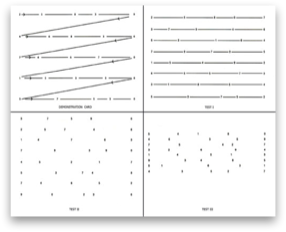 This week’s Know a Procedure may be helpful when you’re on the sidelines of your favorite sporting event and your player takes a rough tumble. Symptoms of a concussion can often be subtle, so it can be hard to correctly diagnose one when it occurs. There are many common myths about concussions, such as always experiencing a loss of consciousness or that concussions are only a result of a direct blow to the head. To help alleviate the confusion with concussions, this week’s procedure is The King-Devick Test, which can help diagnose a possible concussion before seeking further medical help.
This week’s Know a Procedure may be helpful when you’re on the sidelines of your favorite sporting event and your player takes a rough tumble. Symptoms of a concussion can often be subtle, so it can be hard to correctly diagnose one when it occurs. There are many common myths about concussions, such as always experiencing a loss of consciousness or that concussions are only a result of a direct blow to the head. To help alleviate the confusion with concussions, this week’s procedure is The King-Devick Test, which can help diagnose a possible concussion before seeking further medical help.
Researchers from the University of Pennsylvania Perelman School of Medicine conducted a study that was published in the journal, Neurology, which concluded that The King-Devick Test is an accurate and reliable method for identifying athletes with head trauma. It is also a strong candidate for a rapid sideline screening test for a concussion.
According to kingdevicktest.com, The King-Devick Test is an objective, physical method of evaluating visual tracking and saccadic eye movements and is based on the amount of time it takes to perform the rapid number naming.
How The King-Devick Test Works
A series of single-digit numbers is read aloud from left to right on three test cards. The participant is then asked to read the numbers on each card from left to right as quickly as possible without making any errors. Then the sum of the three test card times is added, and the summary score shows if the participant has signs of a concussion.
What sounds like an easy task is actually an effective way to tell if the participant has any vision or memory issues, which are some of the first signs of a concussion, according to Mayo Clinic.
If you suspect you or your child has had a serious concussion, contact your doctor right away.
For more information on the Sports Medicine Orthopedists at Azalea or to make an appointment click here.
For more information on The King-Divick Test click here.
Have a question for one of our orthopedic surgeons? Click here to submit a question.







